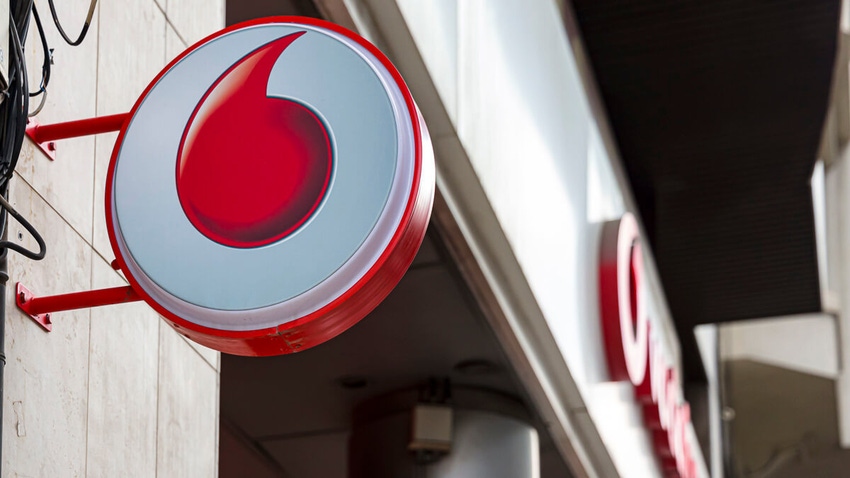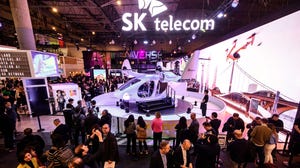Eurobites: Vodafone's UK 3G network is no more
Also in today's EMEA regional roundup: Vodafone reaches provisional agreement on sale of Italian unit; Telia and friends trial new 5G laptop tech; Ericsson tackles waste in Saudi Arabia.

Hard on the heels of BT's equivalent announcement earlier this week, Vodafone UK says it has, to all intents and purposes, successfully switched off its 3G network. The operator does admit, however, that "a small number of locations with UK security significance" and "a handful of remote rural communities" will remain switched on for a short period of time after the main national switch-off. The near-demise of its 3G network allows Vodafone to repurpose the remaining 3G radio frequencies to strengthen its 4G and 5G services. The switch-off is also being presented as an important part of Vodafone's ambition to reach net zero on the emissions front by 2027, as 5G networks, it claims, are ten times more efficient than their 3G antecedents.
Meanwhile, at group level, Vodafone confirmed it has reached a provisional agreement on the sale of its ailing Italian unit to Swisscom-owned Fastweb for €8 billion (US$8.6 billion). Vodafone cautions, however, that there can be "no certainty that any transaction will ultimately be agreed." (See Eurobites: Fastweb considers bid for Vodafone Italy – report and Iliad makes fresh bid to tempt Vodafone into an Italian merger.)
Sweden's Telia is among a group of companies working with Ericsson on a trial of technology that enables an "always-on" 5G connection for Windows 11 laptops. The others in the mix are T-Mobile, SoftBank, Microsoft and Thales. Ericsson Virtual Cellular Network (EVCN), as the technology is called, allows end users on the move to switch between different networks and benefit from 5G connectivity without having to manually initiate a 5G connection and enter a PIN code each time, as is usually the case whenever the laptop is restarted. In the trial, Ericsson employees' Windows 11 PCs switched between networks operated by Telia, T-Mobile and SoftBank as they traveled between Stockholm, New York, Seattle and Tokyo.
Ericsson and IoT Squared, a joint venture between Saudi Arabia's Public Investment fund and Saudi operator STC, have agreed a deal on waste recycling in the kingdom using the Ericsson Connected Recycling (ECR) platform. ECR allows for tracking of waste flows while connecting buyers and sellers of recycled materials and emission credits, promoting waste monetization and thereby reducing the amount of waste ending up in landfill.
Swiss operator Sunrise says it is working with Amazon Web Services (AWS) to accelerate the "cloudification" of Swiss SMEs. Sunrise Business customers will gain access to pre-defined modular product packages for cloud and connectivity tailored to their particular needs. The new offering, says Sunrise, builds on existing AWS services such as Amazon Simple Storage Service, Amazon Elastic Compute Cloud and AWS Storage Gateway.
Deutsche Telekom has introduced a new menu of satellite-based IoT packages – the first time that the German operator has offered satellite connectivity in this way. Customers can choose from two tariff packages, each combining terrestrial and satellite-based connectivity. One of the packages is based on a partnership with Intelsat; the other involves Skylo. Other satellite connectivity companies, including OQ Technology and Sateliot, will become part of Deutsche Telekom's IoT network in due course.
Belgium's Citymesh has signed up to Nokia's Core Software-as-a-Service (SaaS). The use of Nokia Core SaaS will, among other things, support Citymesh's API-related efforts beyond connectivity that are targeting tailored applications for sporting events, first responders and other use cases.
In what is just the latest twist in a decades-long saga, Pan-African operator Vodacom has lodged an appeal against the South African Supreme Court of Appeal judgment made earlier this month in the "Please Call Me" (PCM) case, which ordered Vodacom to pay former employee Nkosana Makate between 5% and 7.5% of the money generated from his PCM idea between 2001 and 2018. PCM, launched as a service in 2001, allows mobile users without any airtime left to send a free text message requesting that someone call them. In line with a 2016 court order, Vodacom initially offered Makate 47 million South African rand ($2.4 million) as recompense for his idea, but this was rejected. In a statement on the matter, Vodacom said that if the judgment was upheld, the impact would be "vast and wide-ranging on both Vodacom South Africa and Vodacom Group, as well as the attractiveness of South Africa as an investment destination."
Read more about:
EuropeAbout the Author(s)
You May Also Like












